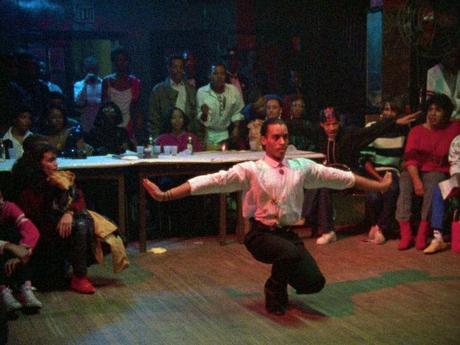Beyoncé uses the c-word in the staging of her 2023 Renaissance tour, as well as in the lyrics of the song Pure/Honey. Raph_PH/Wiki Commons, CC BY-SA" src="https://s.yimg.com/ny/api/res/1.2/3olXopAeqFrZd.Yls2SNVw-/YXBwaWQ9aGlnaGxhbmRlcjt3PTk2MDtoPTY0OA-/https://media.zenfs.com/en/the_conversation_464/2abe29dbdb90b6be24127 d51d81cf6bc" data src="https://s.yimg.com/ny/api/res/1.2/3olXopAeqFrZd.Yls2SNVw-/YXBwaWQ9aGlnaGxhbmRlcjt3PTk2MDtoPTY0OA-/https://media.zenfs.com/en/the_conversation_464/2abe29dbdb90b6be24127d 51d81cf6bc"/>
Warning: This article contains language that some readers may find offensive.If someone told you you were "serving pussy," would you be offended? Despite the addition of the c-word, this sentence is not intended as an insult or a misogynistic slur. In fact, it's quite the opposite - at least, among those in queer communities who have long used it.
The phrase describes someone who exhibits characteristics such as confident, bold, or fierce. It's a state of mind - a point of view that anyone can embody, regardless of gender.
And while the phrase is now part of the "internet vernacular" - to the point that it has reached meme status - its origins predate digital culture. The phrase has a long history in drag, and those immersed in queer culture will recognize qualities associated with this now ubiquitous expression.
To be judged as fierce, brash, or even "sickening" (another counterintuitive compliment) is an honor - or, in drag terminology, the ultimate "slay" (something done very well). Such qualities are embodied in RuPaul's now iconic phrase: "Confidence, Uniqueness, Nerve and Talent" (CUNT). To take the crown, the queen must 'serve' (exhibit) these qualities throughout the competition.
Apparently this is very different from the more conventional meaning of the c-word. Referring to the vulva or vagina, it is typically used as an offensive and vulgar term that reduces women to an object of sexual gratification. Often used as a misogynistic slur, it is often labeled as one of the most offensive words in the English language.
The mainstreaming of this strange expression can undoubtedly be seen as a turning point in the status of the c-word. Some social commentators have said it is a form of reclamation, appropriating a term often weaponized against women but used with deep respect as a form of protest and resistance.
Ball culture
But people are not just "waitresses". They "beat the house" (and do something amazing). They "read people dirty" (insult someone thoroughly), or "throw shade" (insult someone playfully).
The story continues
They also label pop stars like Rina Sawayama and Dua Lipa as "mother" (a term of endearment and admiration). And they "leave no crumbs" (they do something very well).
The spread - or appropriation - of these expressions is symptomatic of a more widespread trend, whereby the language typically associated with drag culture has become mainstream and is now considered part of what people often call the internet language.
Another pop star, Beyoncé, made extensive use of the c-word in the lyrics of her 2022 song, Pure/Honey. It was also featured in the staging of her 2023 Renaissance world tour, where she performed behind a news desk labeled ' KNTY 4 News ".
To understand this development, it is important to recognize where much of the language associated with drag culture comes from. Terms like "shade" and "slay," and expressions like "read to dirt," come originally from African American Vernacular English (AAVE) - a variety of English spoken by black Americans, especially those living in urban areas .
But how did the language of an ethnic minority group become associated with drag queens? The answer is "ballroom" or "ball culture" - an LGBTQ+ subculture formed by African American and Latino people in New York City in the late 20th century, where participants "run" (compete) for trophies, prizes and fame at events known as balls. For those unfamiliar, the 2018 drama Pose documented ball culture in New York City in the 1980s.
As prom culture became more mainstream, so did the language associated with this community - until it became more broadly associated with the LGBTQ+ community. "Shadow casting," "reading," and "spilling tea" (sharing gossip) were no longer confined to the ballroom
Language and appropriation
The spread of this language has led to intense debates about appropriation and authenticity. In 2019, I explored this issue regarding language variation on Twitter. Analyzing a corpus of tweets from British gay men, I argued that they used features of AAVE such as 'work dat pole gurl' and 'y'all mad at hunty' (a dialect that gay men would not normally be expected to they speak). much to claim "blackness," but to present themselves as "brutal." Using stylistic features of AAVE, the men evoked these tropes to express a gay identity that I called the "sassy queen."

In my opinion, however, these practices are problematic because they rely on a racialized image of the "sassy black woman"-a historical trope that portrays black women as vibrant, outspoken, and vibrant.
Many users of the phrase "serving cunt" and other AAVE features also seem unaware of their history. For example, in 2020, Brittany Broski (aka the internet-famous Kombucha Girl) incorrectly described AAVE terms as "stan culture" - referring to the behavior of an extreme group of fans.
At the same time, a series of Black TikTok creators have rightly dismissed claims of a "new TikTok or Gen Z language," stating that many of the features that would make up this "new" variant were in fact AAVE.
So while anyone can basically "serve pussy," it's important to recognize the long history of this phrase, and many others, in drag culture - and, before that, their origins in AAVE.


This article is republished from The Conversation under a Creative Commons license. Read the original article.


